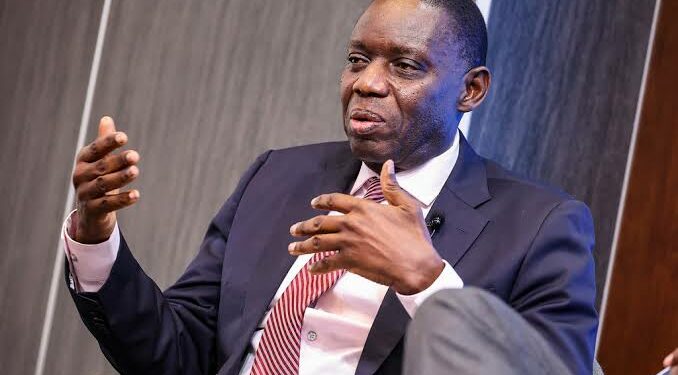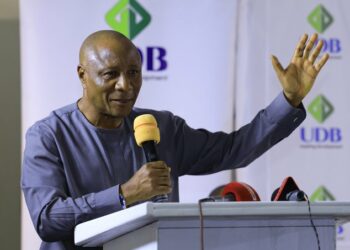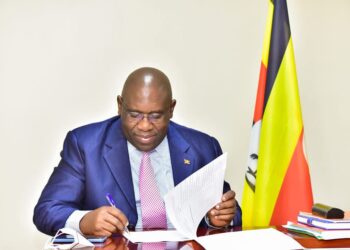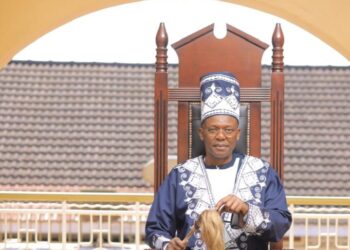In a move signaling confidence in the country’s economic stability, the Bank of Uganda (BoU) has decided to keep the Central Bank Rate (CBR) at 9.75%. The decision, announced by the BoU’s Monetary Policy Committee (MPC), reflects an optimistic outlook for Uganda’s economy despite ongoing global economic challenges.
The BoU’s MPC made this decision after carefully reviewing the latest economic data, which indicated that inflationary pressures remain subdued within Uganda. Michael Atingi-Ego, the Deputy Governor of the Bank of Uganda, highlighted that the country’s annual headline inflation had remained steady at 2.9% as of November 2024. In addition, core inflation, which excludes volatile items such as food and fuel, slightly decreased to 3.8% from 3.9% the previous month, signaling a positive trend in price stability.
Atingi-Ego attributed these favorable developments to a combination of domestic and international factors. “Favorable weather conditions, which have reduced food crop prices, have played a significant role in keeping inflation under control,” Atingi-Ego explained. Additionally, a decrease in global inflationary pressures has helped maintain price stability, while BoU’s past monetary policy actions have supported the stability of the Ugandan shilling’s exchange rate, contributing to a favorable economic environment.
Looking ahead, the BoU remains optimistic about Uganda’s inflation outlook. The central bank projects that average core inflation will remain below the medium-term target of 5%. For the fiscal year 2024/25, the BoU estimates core inflation at 3.7%, and for 2025/26, it expects a slight rise to 4.2%.
Inflation is projected to stabilize around the 5% target in the medium term, driven by strong capital inflows into key sectors such as mining and oil, alongside favorable food and oil prices.
However, the BoU also acknowledged the risks to the inflation outlook, noting potential challenges stemming from global inflationary pressures, geopolitical tensions, and tightening global financial conditions. These factors could contribute to upward pressure on inflation. On the other hand, the central bank pointed out that inflation could remain lower than expected if the Ugandan shilling continues to appreciate, which could further boost capital inflows, or if global economic growth remains subdued.
Despite these risks, the overall economic outlook for Uganda remains positive. The BoU’s MPC forecasts that Uganda’s Gross Domestic Product (GDP) will grow between 6.0% and 6.5% in the fiscal year 2024/25.
Over the medium term, GDP growth is expected to accelerate to between 7.0% and 7.5%. This growth is expected to be driven by strong domestic expenditure, strategic government interventions, and increased foreign direct investment, particularly in Uganda’s burgeoning oil sector. The oil sector is anticipated to play a pivotal role in Uganda’s economic future, with commercial oil production expected to begin in FY2025/26.
The Bank of Uganda emphasized that its current monetary policy stance is designed to support sustainable economic growth while maintaining price stability. The MPC stressed that any future adjustments to the policy rate would be based on evolving economic data and continuous assessments of potential risks.
“The decision to maintain the CBR at 9.75% reflects our commitment to fostering a stable economic environment conducive to growth,” said Atingi-Ego. “We will continue to monitor global and domestic developments closely and remain responsive to any changes in the economic landscape.”
Alongside the CBR decision, the BoU also announced that the rediscount rate and the bank rate would remain unchanged at 12.75% and 13.75%, respectively. The BoU has also kept the bands around the CBR at +/- 2 percentage points, ensuring flexibility in responding to market conditions.
Uganda’s central bank has opted for stability, leaving the key interest rate unchanged while maintaining an optimistic view on inflation and economic growth. However, the BoU remains cautious, aware of the risks posed by global economic uncertainties, and committed to adjusting its policy stance as needed to safeguard the country’s economic stability.
Do you have a story in your community or an opinion to share with us: Email us at editorial@watchdoguganda.com













